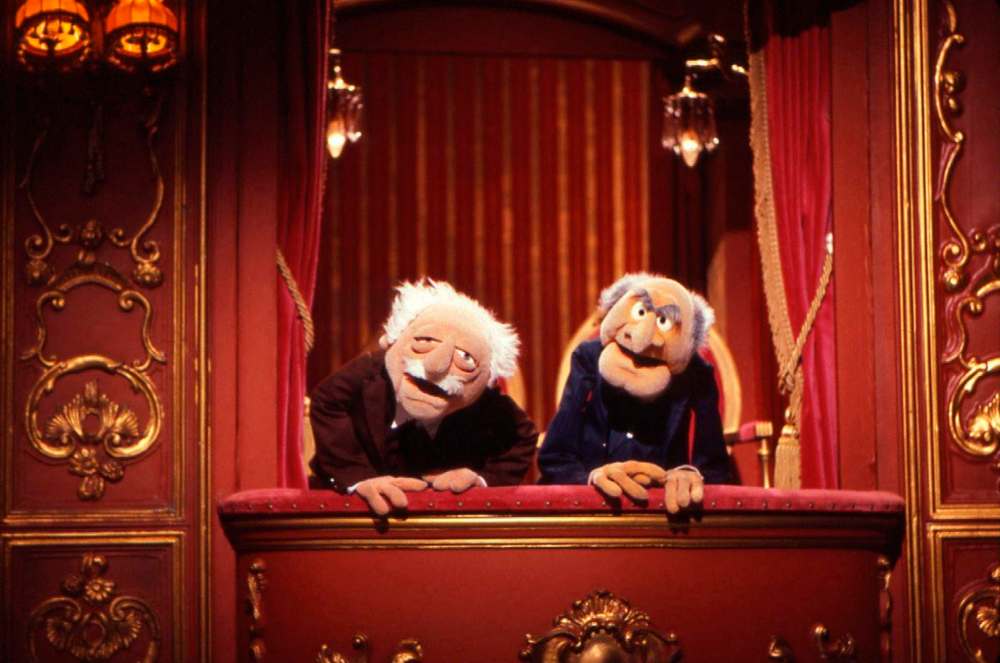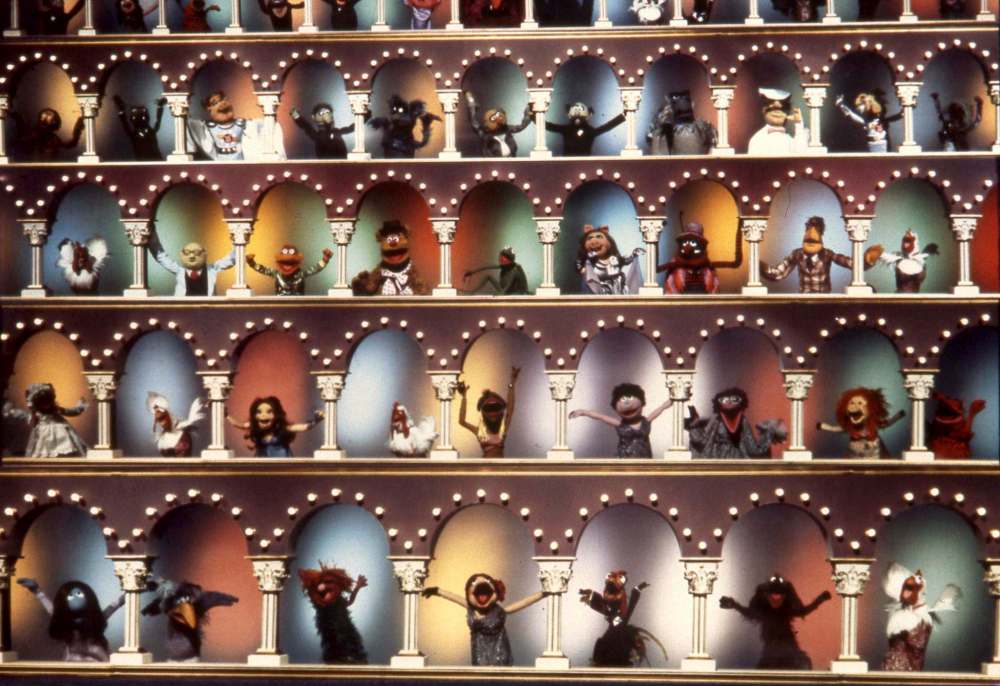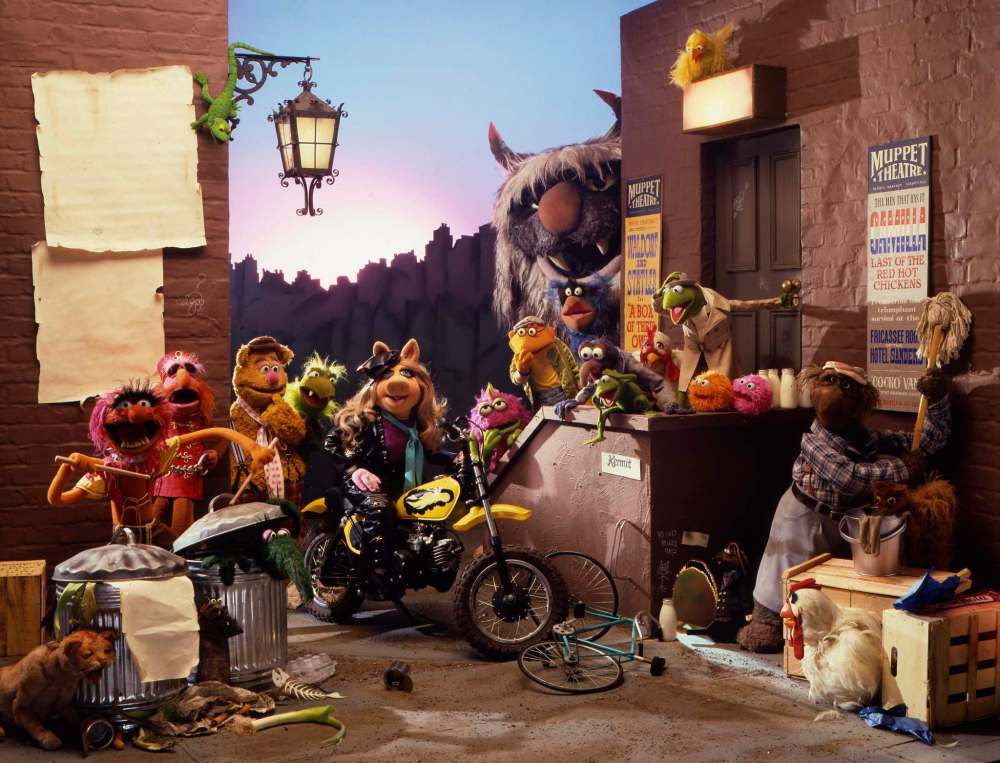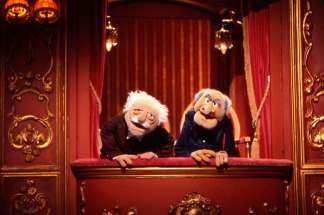Muppets a bit cringey, but still cleverly chaotic 40 years later
Read this article for free:
or
Already have an account? Log in here »
To continue reading, please subscribe:
Monthly Digital Subscription
$0 for the first 4 weeks*
- Enjoy unlimited reading on winnipegfreepress.com
- Read the E-Edition, our digital replica newspaper
- Access News Break, our award-winning app
- Play interactive puzzles
*No charge for 4 weeks then price increases to the regular rate of $19.00 plus GST every four weeks. Offer available to new and qualified returning subscribers only. Cancel any time.
Monthly Digital Subscription
$4.75/week*
- Enjoy unlimited reading on winnipegfreepress.com
- Read the E-Edition, our digital replica newspaper
- Access News Break, our award-winning app
- Play interactive puzzles
*Billed as $19 plus GST every four weeks. Cancel any time.
To continue reading, please subscribe:
Add Free Press access to your Brandon Sun subscription for only an additional
$1 for the first 4 weeks*
*Your next subscription payment will increase by $1.00 and you will be charged $16.99 plus GST for four weeks. After four weeks, your payment will increase to $23.99 plus GST every four weeks.
Read unlimited articles for free today:
or
Already have an account? Log in here »
Hey there, time traveller!
This article was published 04/03/2021 (1741 days ago), so information in it may no longer be current.
Last month Disney Plus reissued five seasons of The Muppet Show, which originally ran from 1976 to 1981, airing in Canada on the CBC.

I remember watching it way back then. I had been a Sesame Street kid, and this felt like a glamorous prime-time upgrade, combining multicoloured Muppet creatures with a truly unpredictable array of human guest stars. Alice Cooper one week, Charles Aznavour another. Diana Ross! Doug Henning! Harry Belafonte! Rudolf Nureyev! Debbie Harry! Mark Hamill! Roy Rogers and Dale Evans! Liberace! You never knew who would show up.
In the 1970s, the show came off as sweet, surreal and purposely hokey, with some innovative puppetry, absurdist humour and an overall vibe of controlled chaos So how does it feel to watch The Muppet Show again in 2021?
It’s certainly more controversial now. And that’s a good thing.
Whatever Fox News and an irate Donald Trump, Jr. might say, the Muppets have not been cancelled by runaway wokeness. Two episodes of the series are not available, one because of music copyright issues and one because it featured a British writer-actor jailed in 2007 on child pornography charges.
But the idea that Disney has folded to the forces of “cancel culture” is misleading. The company has chosen to provide content warnings rather than censor.
Some of the episodes (18 out of 118) start with a brief written disclaimer, which reads, in part: “This program includes negative depictions and/or mistreatment of people or cultures. These stereotypes were wrong then and are wrong now. Rather than remove this content, we want to acknowledge its harmful impact, learn from it and spark conversation to create a more inclusive future together.”

If Don Jr. can’t deal with that, maybe he’s the snowflake. It should also be pointed out that many right-wing pundits currently positioning themselves as pro-Muppet champions have had plenty of problems with the PBS-progressive puppets over on Sesame Street. Last year, Tucker Carlson called out Elmo as a threat to American life after the little red guy talked about systemic racism in the wake of the police killing of George Floyd.
The Muppet Show’s flagged content, much of which involves stereotyped depictions of “exotic” cultures, is cringey to watch and uncomfortable to think about, as it should be. Viewing it made me think about what’s changed — and what hasn’t — in 40 years. Mostly I hit the fast-forward button.
And the other 100 episodes? A lot of it actually feels pretty fresh.
Basically vaudeville put through a postmodern blender, The Muppet Show takes us backstage, where a harassed Kermit the Frog might be wrangling talking vegetables, dealing with exploding cakes or managing a very temperamental Miss Piggy.
Onstage, there are lots of things you don’t see much anymore: dog acts, juggling, ventriloquism, impersonations, poetry recitations, balloon-animal demonstrations, bagpipe numbers and the deliberately bad Borscht Belt-style comedy of Fozzie Bear.
The songs range from ABBA to Sondheim to old music-hall favourites. Sometimes the Muppets perform. (With St. Patrick’s Day coming up, you might want to treat yourself to the spectacle of Beaker, Animal and the Swedish Chef, none of whom really speaks English, belting out Danny Boy on Season 5, Episode 18.) Sometimes the humans perform. (Rita Moreno does a slinky dance number; Gene Kelly offers an intimate, wistful version of Singin’ in the Rain; Alan Arkin proves to be an unexpectedly great lounge singer.)
The special-guest format allowed The Muppet Show to play around with the whole notion of celebrity. It invited an eccentric mix of old-school icons and 1970s stars, serious classical musicians and arrow-through-the-head comedians.
And the series didn’t really treat them like celebs. If you showed up on The Muppet Show, you had to be a good sport. There was always a chance you’d be put in a dancing chicken act.

The writers particularly liked to mess with tough guys, which is why The Muppet Show is the place to enjoy a Rocky-era Sylvester Stallone muscling his way through a treacly ballad or James Coburn getting into a bar fight with puppets.
Many guests have remained famous, but some — Shields and Yarnell, Jaye P. Morgan — are pretty much lost, casualties of the arbitrary nature of celebrity and the passage of four decades.
Four decades is a long time. Hippie Muppets, Muppets singing Jim Croce songs, Paul Williams in bellbottoms, all remind us that 1976 was a while ago. So do the show’s stale stereotypes. As with a lot of our 20th-century pop culture, we’re left to sort out the good and the bad.
alison.gillmor@freepress.mb.ca

Studying at the University of Winnipeg and later Toronto’s York University, Alison Gillmor planned to become an art historian. She ended up catching the journalism bug when she started as visual arts reviewer at the Winnipeg Free Press in 1992.
Our newsroom depends on a growing audience of readers to power our journalism. If you are not a paid reader, please consider becoming a subscriber.
Our newsroom depends on its audience of readers to power our journalism. Thank you for your support.










